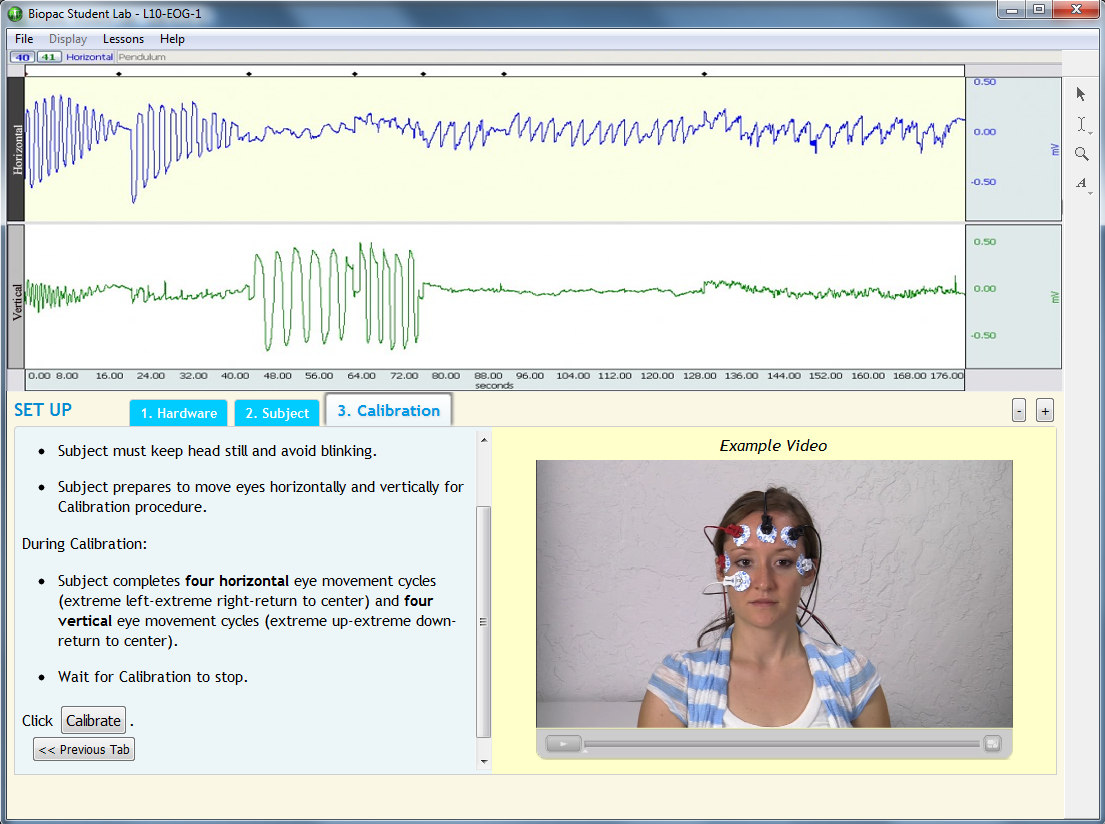L10 Electrooculogram I

Experimental Objectives
-
Compare eye movement when fixated on a stationary object and tracking objects.
-
Measure duration of saccades and fixation during reading.
-
Instructor’s option: Record spatial position of eye movements during visual examination of materials.
Tasks Performed by the Student
BSL Lessons are designed to allow at least four students to record and save data in a normal lab period (60-90 minutes). Typically, labs work most efficiently with three or more students working together at each BSL station.
- Record horizontal and vertical EOG.
- Face their partner.
- The partner will hold a pen in front of the subject and the subject will focus on the pen.
- The partner will move the pen horizontally and the subject will track the movement.
- The partner will move the pen vertically and the subject will track the movement.
- The subject will read a passage of text.
- The subject will face the monitor and position their eyes to the center of the screen. By moving their eyes they will control the dot on the screen.
Videos
BSL 4 L10 EOG - Electrooculography
BSL L10 Rec 1
Biopac Student Lab Student Download
Lesson Hardware
This lesson requires a Biopac Student Lab (BSL) System and the following hardware. If your BSL System does not include all hardware items, expand your system by selecting required items below. For more details, review the Lesson: L# BSL Lessons - see the Lab Manual or launch BSL; A# and H# BSL PRO Lessons, click the PDF link above to review full setup, recording, and analysis procedures.
| Item | Name | Cart |
|---|---|---|
| SS2LB | Lead set, shielded, BSL | Add to Cart |
| GEL1 | Electrode gel 50 g | Add to Cart |
| EL503 | Disp. Gen-purp electrode 100/pk | Add to Cart |
| ELPAD | Abrasive Pads 10/pk | Add to Cart |
Stay Connected